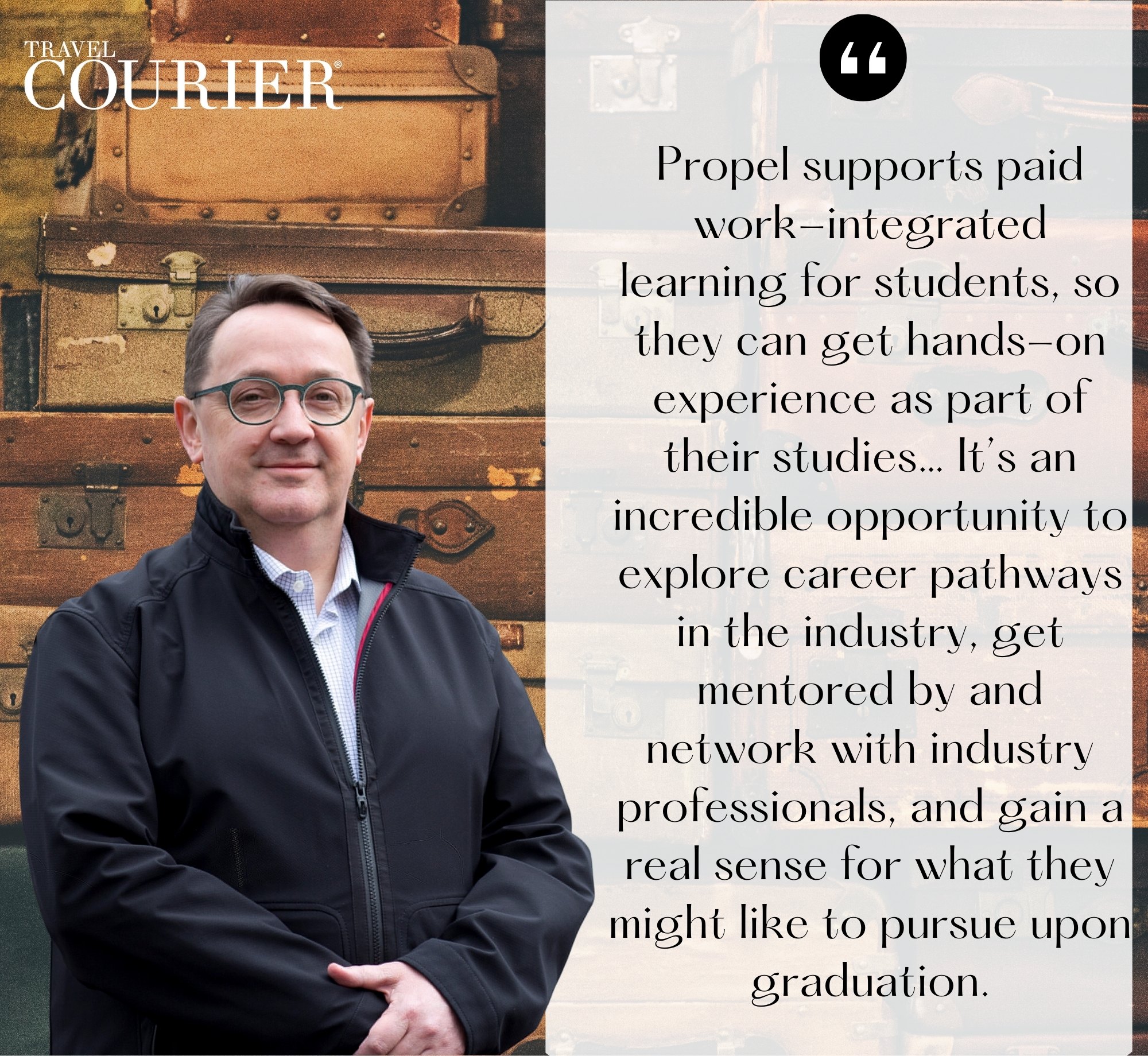As Philip Mondor, President & CEO of Tourism HR Canada, sees it, while travellers are excited to get out there, the changing health guidelines, differing regulations, and range of insurance policies can be tricky to navigate — and that’s where travel professionals can offer real value and fill a growing need.

The travel and tourism industry is loaded with opportunities that will only increase over the coming months and years. As destinations open up, people are booking all the experiences they’ve missed out on over two years — “revenge travel”, as some are calling it. Businesses across the country are seeking qualified individuals such as recent grads to join them. They offer the chance to quickly build a meaningful, well-paid career. While travellers are excited to get out there, the changing health guidelines, differing regulations, and range of insurance policies can be tricky to navigate — and that’s where travel professionals can offer real value and fill a growing need.

We offer a wide range of programs and resources students can access: career exploration, labour market intelligence, training and certification, and entrepreneurial and small business guidance.
Our website, TourismHR.ca, hosts Discover Tourism, a suite of resources and self-assessment tools that can help students decide how to apply their skills and interests in the industry. Our site also offers an in-depth look at tourism employment numbers, which can help students navigate the job market.
We have a longstanding relationship with the Association of Canadian Travel Agencies (ACTA), having worked together to develop the Certified Travel Counsellor and Certified Travel Manager programs. These are linked to our Emerit training and certification brand, through which we coordinate programs for many tourism-related occupations. Through Emerit, we also offer Business Builders and the Tourism HR Toolkit, both of which can help those looking to establish or manage a small business.
And we have the Propel Student Work Placement Program, which links students and employers for experiential learning.

Propel supports paid work-integrated learning for students, so they can get hands-on experience as part of their studies.
Domestic post-secondary students who are looking to fulfil a co-op placement, internship, or the like as part of their program requirements can connect with an employer related to travel, tourism, or hospitality and complete a paid work placement. It’s an incredible opportunity to explore career pathways in the industry, get mentored by and network with industry professionals, and gain a real sense for what they might like to pursue upon graduation. Students may even be able to transition right from the placement to employment.
The program provides wage subsidies to employers for each qualifying student hired; it is funded by the federal government’s Student Work Placement Program. Details can be found at PropelCareers.ca.

We routinely publish labour market information that can help students identify what industries require employees, where there are staff shortages (or surpluses), and what they can expect in the way of salaries and compensation. Much of this can be explored on our website, free of charge, and we share the latest data through our e-newsletter, Tourism HR Insider, and on our social media. As of last month, our industry had 250,000 fewer individuals working in it than the month before the pandemic struck. As public health measures lift, opportunities are rapidly opening up. Summer is the main tourist season in most Canadian travel destinations, and the whole industry needs people to welcome an influx of visitors.


Tourism offers tremendous potential, both short-term as we emerge from the pandemic and long-term as we ensure sustainability. Travel allows people around the world to connect with other cultures, to immerse themselves in diverse environments, and to partake in new experiences.
Students and professionals have an unparalleled opportunity to shape a responsible, respectful, and regenerative industry. Bring your ideas, share your voice. Attend industry events. Connect with industry associations. Participate in surveys, working groups, and task forces.
We need diverse points of view and fresh takes as we collaborate to re-establish tourism as one of the key economic sectors—one that employed one in ten people across the country and contributed $105 billion to Canada’s GDP.
We must take a smart, holistic approach as we recover and grow. Let’s work collectively to foster innovation and inclusion.

















